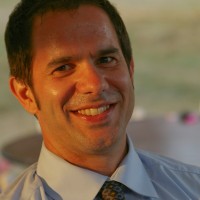
A Matter of Degrees: How Alternative Credentials Will Lead a Shift to Skills-based Hiring
Summit Stage Recording
About the Speaker

Keil Dumsch
Freelance Writer and Education Reformer
The Story
The Degree System: The Original Sin of Higher Education
"The original universities in the Western world organized themselves as guilds, either of students, as in Bologna, or of masters, as in Paris. From the first, their chief mission was to produce not learning but graduates, with teaching subordinated to the process of certification —much as artisans would impose long and wasteful periods of apprenticeship, under the guise of “training,” to keep their numbers scarce and their services expensive."
N Plus One magazine, 2012

The Why
“But there is a ... dividing line, and above that line are those who have bachelor degrees or better from a four-year college or university. Below that are the people who don't…Based on today's standards, Wolfe said, Thomas Edison would be a computer repairman, Chuck Yeager would clean jet engine intakes and Microsoft wouldn't consider hiring Bill Gates.”
Tom Wolfe, 2002 Duke commencement speech

"Americans have figured out that universities exist in order to man the gates of social class, and we pay our princely tuition rates in order to obtain just one thing: the degree, the golden ticket, the capital-C Credential." Thomas Frank, Harper's magazine 2012
"I'm not arguing against higher learning but for it — and against the degree system that stands in its way.” Jack Hough, New York Post 2009
What's Next
“This negativity should be of special concern given that the number 1 reason Americans value higher education is to “get a good job”. A mere 13% of US adults, 11% of C-suite business executives and 4% of colleges’ and universities’ trustees have strong confidence in the work-readiness of graduates. Equally worrisome, only 26% of US adults with college experience strongly agree their education is relevant to their work and day-to-day lives.”
Brandon Busteed, The Economist March 2020
“Workers will likely consume this lifelong learning in short spurts when they need it, rather than in lengthy blocks of time as they do now when it often takes months or years to complete certificates and degrees.” Jeff Selingo, The Atlantic 2018
“Hiring on the basis of validated abilities, rather than degrees, is creating a talent marketplace with skills as its currency…people are granted opportunities on the basis of what they can do, rather than which institutions or networks they were able to enter. “
Chris Dede and Katie Sievers, Barron’s December 2020

Call to Action

What we need:
Closing Thoughts
What will you do with what you just learned?
"You can design today for tomorrow, or you can design tomorrow, today."

